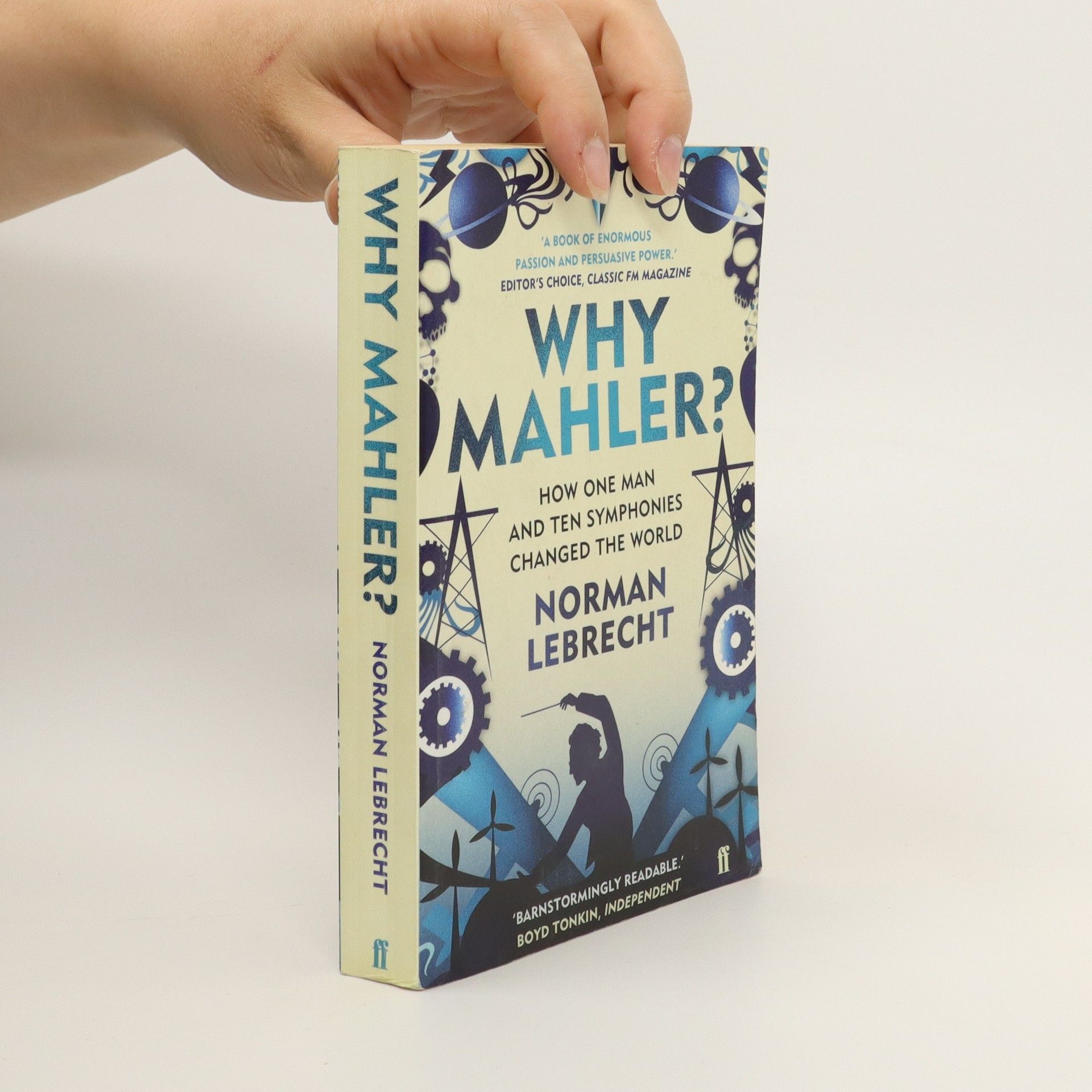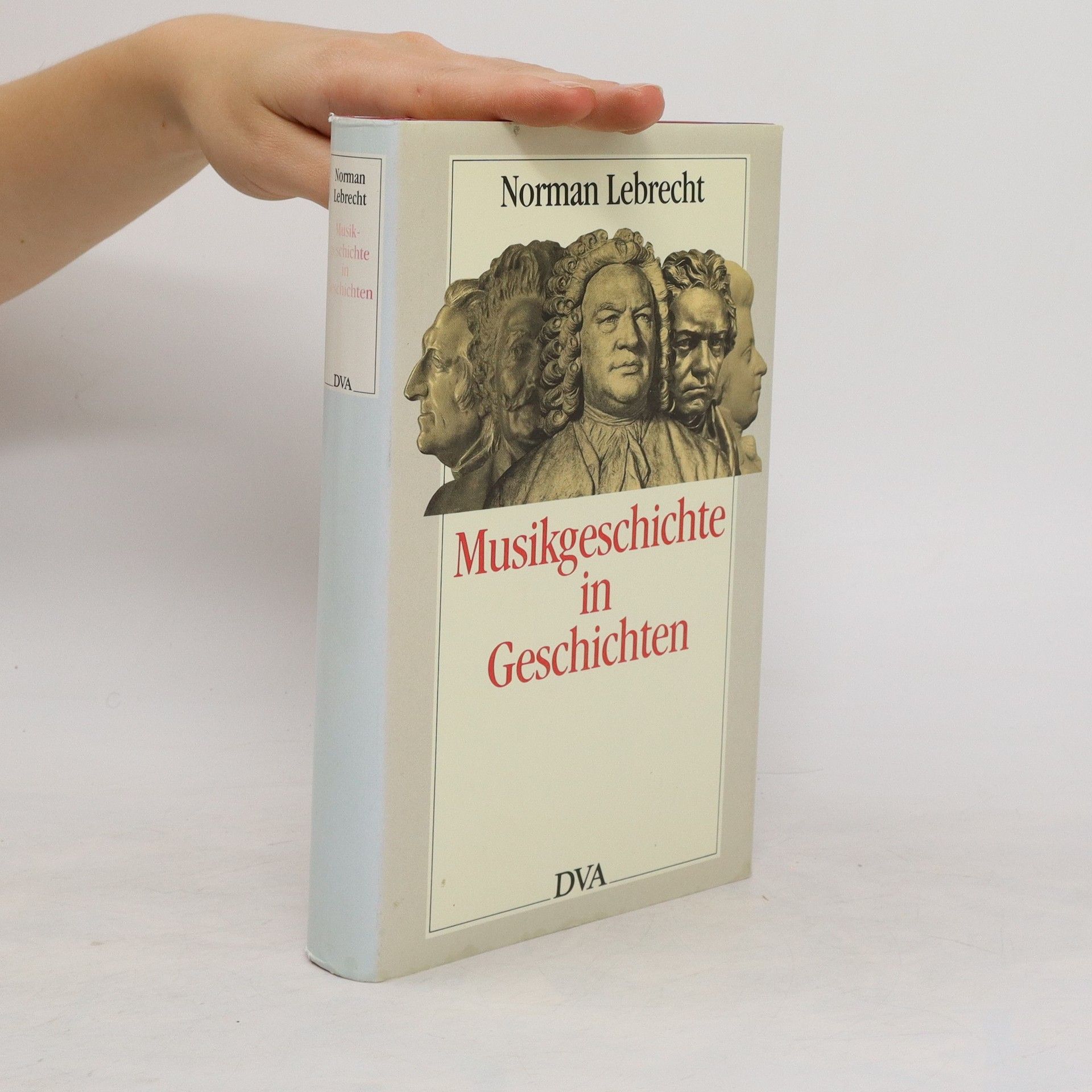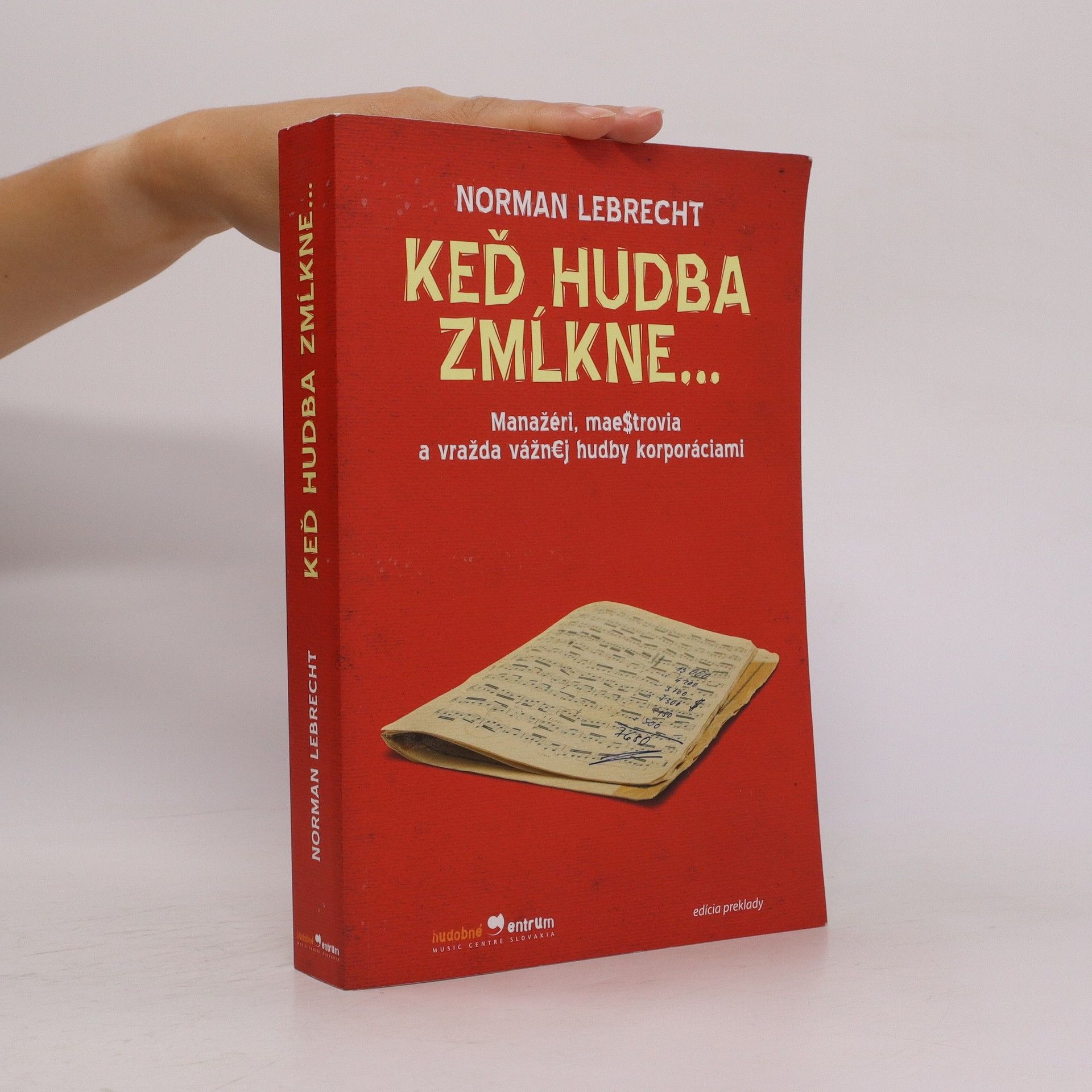Strhující příběh dvou chlapců, syna hudebního nakladatele a geniálního houslisty z polské židovské rodiny, kteří společně vyrůstají za války v Londýně .
Norman Lebrecht Knihy
Norman Lebrecht je britský publicista a prozaik, jehož díla se zaměřují na hudbu a kulturní dění. Jeho psaní se vyznačuje pronikavým vhledem do světa klasické hudby a jejího společenského kontextu. Lebrecht zkoumá složité vztahy mezi uměním, historií a lidskou psychikou, přičemž jeho stylistická obratnost vtahuje čtenáře do hlubokých uměleckých debat. Prostřednictvím svých románů a esejů odhaluje univerzální témata lidské existence, zasazená do fascinujícího prostředí hudebního světa.







Málokterá kniha hudebního publicisty vzbudila ve světě v 90. letech takový rozruch jako The Maestro Myth Normana Lebrechta. V historii, literatuře a hudbě velmi vzdělaný redaktor Sunday Times a Opera News však vzbudil pozornost i dalšími svými knihami: Kdo zabil klasickou hudbu, Nezapomenutelný Mahler ... Obávaný kritik jako by svou knihou rýpl do vosího hnízda. Jeho názory a reflexe na dirigentské osobnosti, na svět hudebního byznysu, na minulost a hlavně současnost hudební interpretace jdou skutečně na dřeň problémů.
Beethoven’s life and legacy in 100 recordings
Genius & Anxiety: How Jews Changed the World, 1847-1947
- 464 stránek
- 17 hodin čtení
In a hundred-year period, a handful of men and women changed the way we see the world. Without Karl Landsteiner there would be no blood transfusions or major surgery. Without Paul Ehrlich, no chemotherapy. Without Siegfried Marcus, no motor car. Without Rosalind Franklin, genetic science would look very different. What do these visionaries have in common? They all had Jewish origins. They all had a gift for thinking in wholly original, even earth-shattering ways. In 1847 the Jewish people made up less than 0.25% of the world's population, and yet they saw what others could not. Starting with the death of Mendelssohn and the birth of political anti-Semitism, Lebrecht takes us through the Jewish experience. The result is a celebration of Jewish genius and contribution
Genius and Anxiety
- 448 stránek
- 16 hodin čtení
A unique chronicle of the hundred-year period when the Jewish people changed the world - and it changed them
Why Mahler?
- 384 stránek
- 14 hodin čtení
In this highly original account of Mahler's life and work, Norman Lebrecht - renowned writer, critic and cultural commentator - explores the Mahler Effect, a phenomenon that reaches deep into unsuspecting lives, altering the self-perceptions of world leaders, finance chiefs and working musicians.
When the Music Stops
Managers, Maestros and the Corporate Murder of Classical Music
Nearly ten years after its original publication, The Maestro Myth continues to enthrall readers with its insightful look into the lives and careers of the world's most celebrated conductors. Now updated and including two new chapters, this volume portrays the politics and inflated economics surrounding the podiums of today's international classical music scene, and the obstacles faced by blacks, women, and gays. From Richard Strauss to Herbert von Karajan to Leonard Bernstein to Simon Rattle, The Maesto Myth examines the world of classical music and the mounting crisis in a profession where genuine talent grows ever scarcer. It is a must-have resource for music aficiionados as well as anyone interested in the behind-the-scenes lives of these music masters. Book jacket.
Musikgeschichte in Geschichten
- 439 stránek
- 16 hodin čtení
Keď hudba zmľkne: manažéri, maestrovia a vražda vážnej hudby korporáciami
- 375 stránek
- 14 hodin čtení
Vo svojich dejinách hudobného biznisu Norman Lebrecht nazerá pod pokrievku a tvrdí, že za úpadok vážnej hudby sú zodpovedné nadnárodné korporácie, ktoré ju ovládajú. Bežní milovníci hudby sa vytrácajú z koncertov, orchestre čelia bankrotom, noví skladatelia a umelci nie sú schopní nájsťsi publikum – a napriek tomu hŕstka hviezd na tom mimoriadne bohatne. Keď hudba zmĺkne… je vyčerpávajúci pohľad do zákulisia obchodu s vážnou hudbou: od prvých majstrov sebaprezentácie, ako bol Liszt a Barnum, cez sily, ktoré stáli za Pavarottim, až k pochabostiam Bernsteina, je naplnený farbistými detailmi, poznatkami zvnútra a nevyhnutnými štatistickými údajmi. S pochopením a humorom Norman Lebrecht napísal záverečnú správu o vzostupe a páde vážnej hudby ako nezávislého umenia. Autor je jedným z najčítanejších komentátorov hudby, kultúry a kultúrnej politiky, pravidelne sa objavuje na BBC Radio 3 a prispieva do Daily Telegraph, Wall Street Journal, Bloomberg a i.



